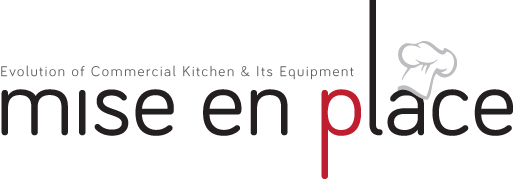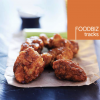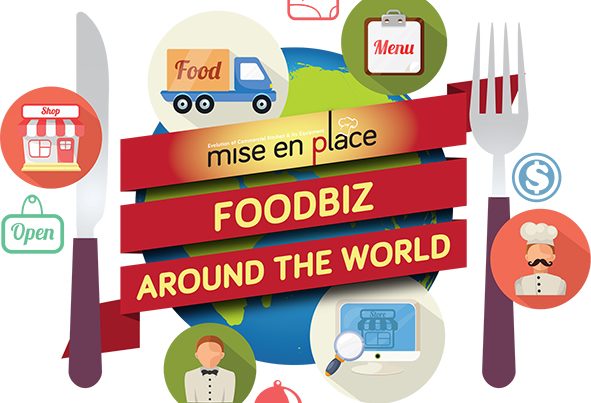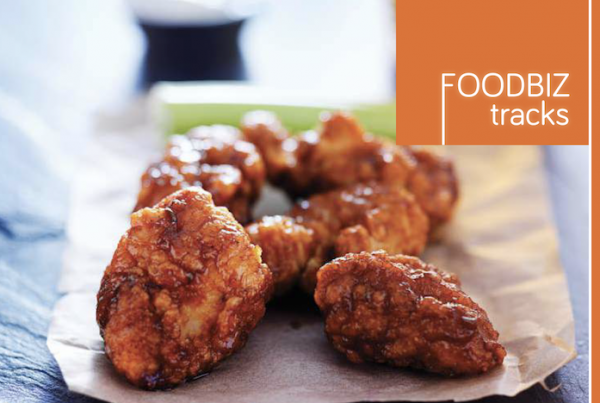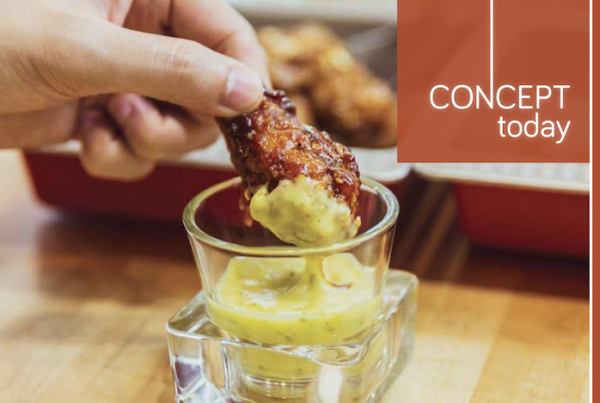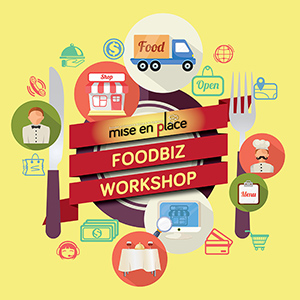
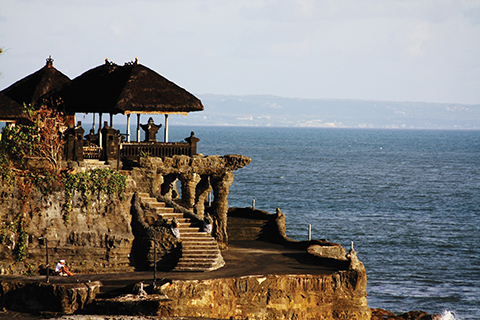 Following up from Part 1 in Volume 16, we go more in-depth on why Indonesia is a very economically viable country to run a business. As Southeast Asia’s largest economy, the country’s gross national income per capita is steadily rising and reached number 10 in the world’s list of largest economy in terms of purchasing power parity. With this rise, it has also managed to reduce its poverty rate to more than half since 1999, to 11.2% in 2015. The allure to invest in this country is further heightened by its President’s decision to open various industries to full and partial foreign ownership, one of which is the Food & Beverage industry. Having said that, business ownership in Indonesia is not as clear cut with challenges such as regulatory uncertainties and high logistic costs.1 However, there is better clarity in the major and developing cities as we have identified previously in Jakarta, Surabaya and Bali. This time we’ll profile Medan, Pekanbaru and Yogyakarta to find out the culture and the viability for a business to thrive.
Following up from Part 1 in Volume 16, we go more in-depth on why Indonesia is a very economically viable country to run a business. As Southeast Asia’s largest economy, the country’s gross national income per capita is steadily rising and reached number 10 in the world’s list of largest economy in terms of purchasing power parity. With this rise, it has also managed to reduce its poverty rate to more than half since 1999, to 11.2% in 2015. The allure to invest in this country is further heightened by its President’s decision to open various industries to full and partial foreign ownership, one of which is the Food & Beverage industry. Having said that, business ownership in Indonesia is not as clear cut with challenges such as regulatory uncertainties and high logistic costs.1 However, there is better clarity in the major and developing cities as we have identified previously in Jakarta, Surabaya and Bali. This time we’ll profile Medan, Pekanbaru and Yogyakarta to find out the culture and the viability for a business to thrive.
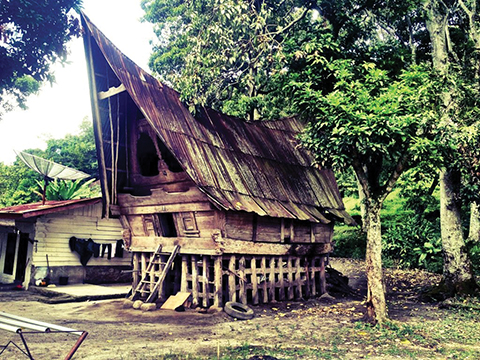
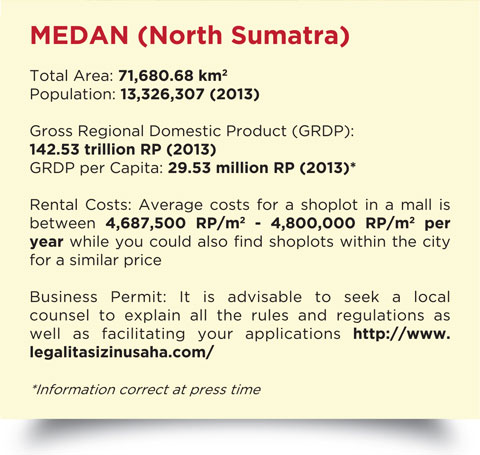 The fourth largest city, Medan is also a major shopping spot with a mix of open air markets and modern shopping malls. It is perhaps most synonymous as being a transit point to tourism attractions like serene Lake Toba; the largest volcanic lake in the world or the highlands of Berastagi where popular hiking places like Mount Sibayak and Mount Sinabung are located. Medan’s communities include the Bataks, Maindailings while a large ethnic Javanese community is reflected by various Javanese toponymies in the city. The Malays and Karo peoples alongside a large number of Chinese originating from Fujian Province and Tamil descendants who are commonly known as Madrasis or Tamilian make up Medan. As one might expect, the diverse communities would inevitably shape the eating culture here.
The fourth largest city, Medan is also a major shopping spot with a mix of open air markets and modern shopping malls. It is perhaps most synonymous as being a transit point to tourism attractions like serene Lake Toba; the largest volcanic lake in the world or the highlands of Berastagi where popular hiking places like Mount Sibayak and Mount Sinabung are located. Medan’s communities include the Bataks, Maindailings while a large ethnic Javanese community is reflected by various Javanese toponymies in the city. The Malays and Karo peoples alongside a large number of Chinese originating from Fujian Province and Tamil descendants who are commonly known as Madrasis or Tamilian make up Medan. As one might expect, the diverse communities would inevitably shape the eating culture here.
WHERE TO EAT IN MEDAN
CEMARA ASRI COMPLEX
Located within a shopping complex and the Cemara Asri housing complex, it seems to be the default eating place for the residents. The day sees food peddlers with snacks, satay meatball, fruit drinks, Tok Tok, burgers and also roasted corn. When night falls, tables are placed in front of the closed shops and people come for seafood al fresco. You could call this the ChinaTown of Medan.
SEMARANG STREET
During the day, spare part car shops and electricity shops ply their trade but the street transforms into a culinary haven at night. Might remind one of a Chinese town with primarily Chinese cuisine dishes from the regular noodles, rice and dishes to the exotic such as snake meat, lizard, spider, bat, frog and other special animals.
PAGAYURUNG
Opens from 6pm – 1am, this long time culinary district is famous for Indian dishes like Martabak and bread served with lamb curry and Indonesian dishes tlike fried rice, padang satay or padang rice. This area is near the shopping malls that sell many products such as bakery, souvenir shops to modern shopping places like the Sun Plaza and Cambridge City Square.
RING ROAD
Also known as the Gagak Hitam Street; there is a combination of offerings from food peddlers, cafes and also restaurants. Considered a newcomer in the culinary landscape, its move to expand seems to go in a modern route with newly opened fast food outlets.
FAMOUS MEDAN FOOD
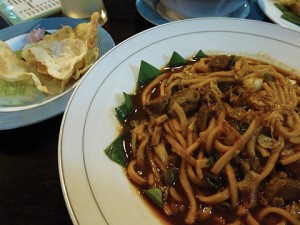 MIE GOMAK
MIE GOMAKThis is Batak’s version of spaghetti. It originated from the Balige region near the side of Lake Toba. Only sold in North Sumatra, it is also called stick noodle due to it’s shape. This noodle is usually eaten with lontong broth or peanut sauce.
ACEH MEDAN NOODLE
Like the Padang Satay, Aceh noodle also migrated to Medan and become the Aceh Noodle ala Medan. The Titi Bobrol Aceh Noodle is most recommended.
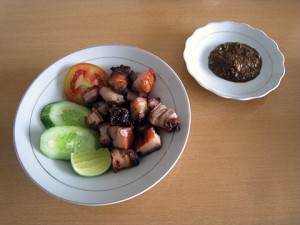 KARO ROASTED PORK
KARO ROASTED PORKA dish dreamed up by the Batak living on Karo highlands, the roasted pork has made a name for itself such as the Tesalonika Roasted Pork that has opened many branches in the city of Medan and Berastagi.
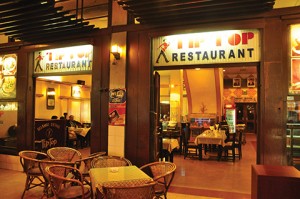 TIP TOP ICE CREAM
TIP TOP ICE CREAMMight come across as a strange addition but Tip Top Restaurant is a must. It was established in the year 1934 and they are still using their ancestors recipes. Located at the Kesawan Square, a taste of this ice cream brings one back to 1930’s Medan.

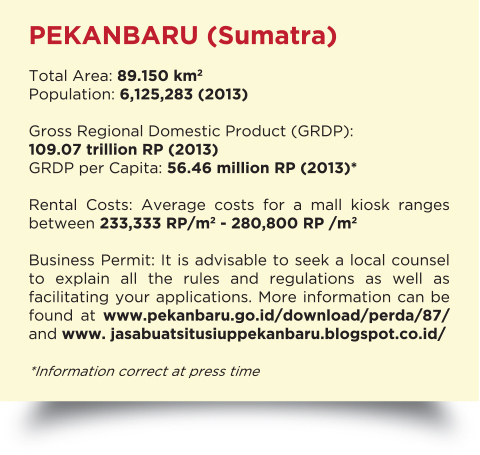 A city recognised as a trading port, Pekanbaru is located on the banks of the Siak River that drains into the Straits of Malacca, boosting its trading potential. In the late 19th century, the Dutch built roads to ship goods to Singapore and Malacca and the city was subsequently developed to serve the coffee and coal industries. One of Pekanbaru’s outstanding characteristics is its wide main streets and large median road. On top of that, it received is one of the cleanest big cities in Indonesia. In 2011, Pekanbaru received the “Adipura” (‘cleanest city’) award in the category of large city for the seventh consecutive time. Its communities are made up of a mix of Minangkabau, Riau Malays, Javanese, Batak, and Tionghoa. Leading from its importance of location, Pekanbaru’s level of urbanisation has also peaked, making it a very viable selection for a F&B enterprise. Judging from the city’s favourite places to eat, a good mix of Western, Indonesian, fast food and cafe culture can be seen. Here are a list of places or food types that residents of Pekanbaru find favour in.
A city recognised as a trading port, Pekanbaru is located on the banks of the Siak River that drains into the Straits of Malacca, boosting its trading potential. In the late 19th century, the Dutch built roads to ship goods to Singapore and Malacca and the city was subsequently developed to serve the coffee and coal industries. One of Pekanbaru’s outstanding characteristics is its wide main streets and large median road. On top of that, it received is one of the cleanest big cities in Indonesia. In 2011, Pekanbaru received the “Adipura” (‘cleanest city’) award in the category of large city for the seventh consecutive time. Its communities are made up of a mix of Minangkabau, Riau Malays, Javanese, Batak, and Tionghoa. Leading from its importance of location, Pekanbaru’s level of urbanisation has also peaked, making it a very viable selection for a F&B enterprise. Judging from the city’s favourite places to eat, a good mix of Western, Indonesian, fast food and cafe culture can be seen. Here are a list of places or food types that residents of Pekanbaru find favour in.
FAMOUS PEKANBARU FOOD
LOCAL PANTRY CAFE
Frequented for its minimalist, laid-back and cafe styled decor and atmosphere with its central location a plus point; the cafe’s menu is not vast but provides a mix of Indonesian delights and familiar Western items. Another reason for customers include ‘live’ music sessions and a karaoke lounge on its second floor.

CAKES & PASTRIES
The sweet tooth has made its way into Pekanbaru and two of the popular places are L’ Cheesecake Factory and Klapper Pie. The former started solely with cheesecake and has now expanded to include tarts, mille crepe and edible pop art. Meanwhile, the latter offers pies in a variety of flavours and sizes making them ideal gifts for special occasions or for snacking.
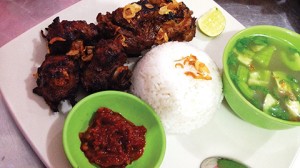
IGA BAKAR COBEK ( GRILLED RIBS)
Beef ribs are marinated in a simple mix comprising shallots, garlic, chilli, dark and light soya sauce, sugar, ginger before slowly braised till tender. It is then put on the grill. Some establishments serve it in a gravy to accompany rice.
RUMAH MAKAN CUIK (CUIK EATING HOUSE)
An icon of Pekanbaru, this eating place is a house and it invites you to the kitchen and pick your preferred dishes. Famous for its fish dishes, this establishment was started in the 70s and the name “Cuik” was derived from the word ‘lisuik’ (small) to describe the founder’s size.
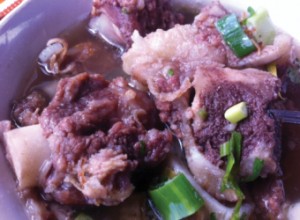 SUP TUNJANG
SUP TUNJANGCould be loosely translated to beef ribs soup, chunks of ribs are simmered slowly till tender in a flavour mix of herbs and spices while vegetables like celery, onions, potatoes, and tomatoes to further sweeten its taste and enhance its nutrients.
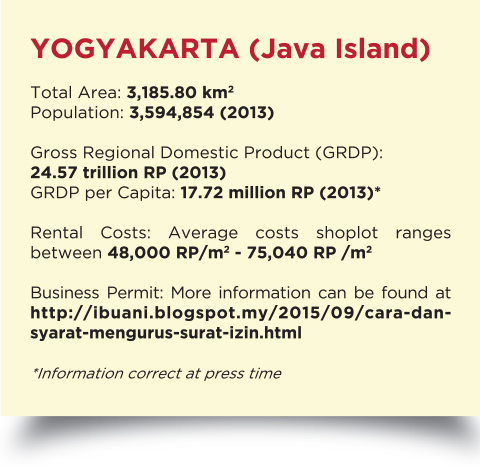 Also known as Jogjakarta and fondly called Jogja by locals, is the capital of the Yogyakarta Special Region in Java, Indonesia. It was actually Indonesia’s capital during the Indonesian National Revolution from 1945 to 1949 before Jakarta took over. The city has risen to become one of the important tourist destination on its account of proximity to the famous Borobudur and Prambanan temples as well as The Kraton; the grand palace of the city featuring traditional Javanese architecture. Aside its cultural fame, the city has also grown as a city for education with numerous learning institutes, including Indonesia’s oldest university and one of the largest ones in Southeast Asia that is Universitas Gadjah Mada – ranked by The Times as number 56 of the world’s top 100 arts and humanities universities. The annual Doing Business 2012 report also puts Yogyakarta as one of Indonesia’s top performers when it comes to ease of doing business due to its consolidated process in registering a business.
Also known as Jogjakarta and fondly called Jogja by locals, is the capital of the Yogyakarta Special Region in Java, Indonesia. It was actually Indonesia’s capital during the Indonesian National Revolution from 1945 to 1949 before Jakarta took over. The city has risen to become one of the important tourist destination on its account of proximity to the famous Borobudur and Prambanan temples as well as The Kraton; the grand palace of the city featuring traditional Javanese architecture. Aside its cultural fame, the city has also grown as a city for education with numerous learning institutes, including Indonesia’s oldest university and one of the largest ones in Southeast Asia that is Universitas Gadjah Mada – ranked by The Times as number 56 of the world’s top 100 arts and humanities universities. The annual Doing Business 2012 report also puts Yogyakarta as one of Indonesia’s top performers when it comes to ease of doing business due to its consolidated process in registering a business.
FAMOUS FOOD SPOTS IN YOGYAKARTA
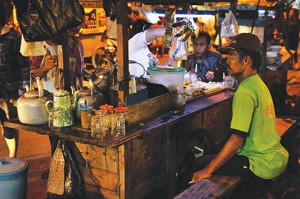 ANGKRINGAN [RP 10,000 ONWARDS]
ANGKRINGAN [RP 10,000 ONWARDS]Not a food spot in itself, ‘angkringan’ are food tenants selling food on a simple cart with a plastic tarp roof. These are symbolic of Jogja cuisine and still stands strong despite competition from modern cafes; partly due to the nostalgic factor and the budget prices these carts offer. It is not surprising to see diners sitting on pavements to enjoy food purchased from the ‘angkringan’.
PEMPEK NY. KAMTO [ RP 9,000]
This savoury fishcake snack comprised of fish and tapioca is deep fried and served with a vinegar sauce. The popularity of Ny. Kamto’s pempek has stretched to about 10 branches within Yogyakarta, and has a presence in Semarang, Solo and Surabaya.
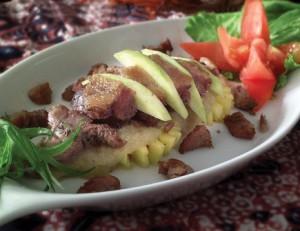 BEBEK SUWAR-SUWIR BALE RAOS [RP 60,000]
BEBEK SUWAR-SUWIR BALE RAOS [RP 60,000]The bebek Suwar-Suwir (pieces of duck strongly seasoned with pepper and other spices) in this restaurant is a favourite of Sultan Hamengku Buwono IX. The shredded fried duck meat is served with pineapple slices and a sauce made with ambarella fruit and spices that offsets the gamey duck flavour.
OSENG-OSENG MERCON BU SUNARTI [RP 15,000]
Literally translated to mean ‘firecracker soup’; the fiery liquid contains fatty meat, skin and cartilage. It ought to be consumed quickly as the high fat content tends to cause the soup to become gelatinous when it cools. Oseng-oseng is eaten with rice and can be accompanied by fried chicken, quail or catfish.
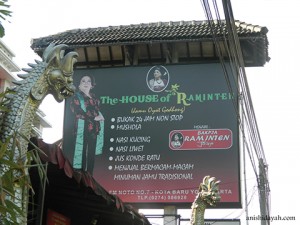 THE HOUSE OF RAMINTEN [ RP 3,000 ONWARDS]
THE HOUSE OF RAMINTEN [ RP 3,000 ONWARDS]The restaurant’s decoration and staff attire reflects its appreciation of diversity. Guests come for its ‘jamu’; a Javanese herbal drink prized for its remedial properties and the unique serving method where each drink type is served in a glass especially designed for it. Food wise, it is famous for ‘sego kucing’. Although loosely translated to ‘rice cat’; it actually refers to the small amount of portions of rice people buy from the roadside (it could also mean the amount of food a cat eats?) This is a 24-hour restaurant.
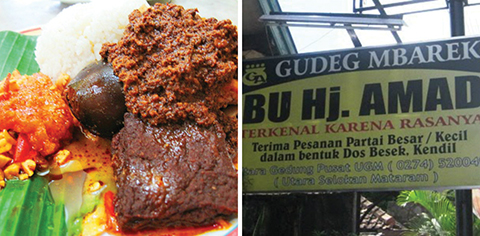
GUDEG BAREK [RP 8,000 ONWARDS]
A traditional cuisine from Yogyakarta, gudeg is a dish made from young unripe jack fruit that has been boiled with palm sugar, coconut, milk, various spices and teak leaves that gives the dish a reddish brown colour. Gudeg is easily found around the city but Barek’s stall has been a long-standing one, a testament to being the citizens’ favourite.
RELATED ASSOCIATIONS
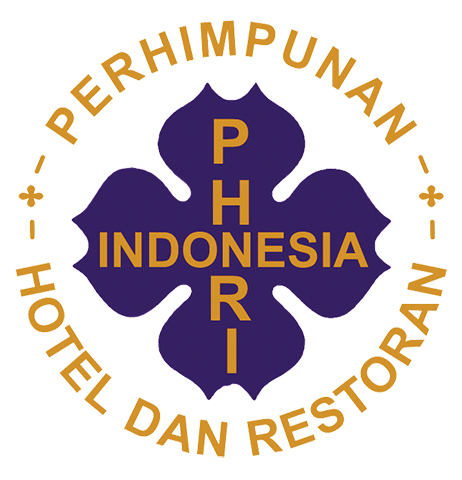 Perhimpunan Hotel dan Restoran Indonesia (PHRI) / Indonesian Hotel and Restaurant Association (IHRA)
Perhimpunan Hotel dan Restoran Indonesia (PHRI) / Indonesian Hotel and Restaurant Association (IHRA)
A non-profit association with members comprising hotel owners, restaurant owners and professionals working together to grow the key sectors of the tourism industry in Indonesia.It works with the government to create policy(s) structured to the real needs of the industry.
www.phrionline.com/index.html
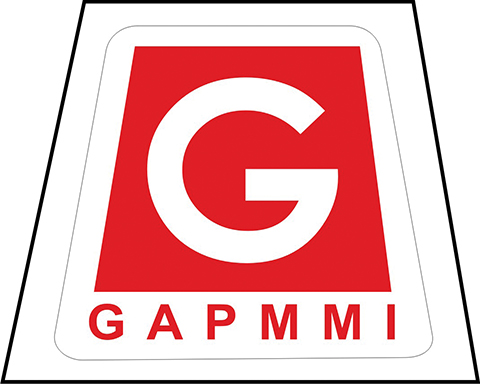 Gabungan Pengusaha Makanan dan Minuman Indonesia (GAPMMI) / The Indonesia Food and Beverages Enterpreneurs
Gabungan Pengusaha Makanan dan Minuman Indonesia (GAPMMI) / The Indonesia Food and Beverages Enterpreneurs
Established in 1976 on the basis to create awareness amongst the business community to promote food in Indonesia. Through public advocacy, network development in both the local and international arena and collaborations with the Indonesian Government, GAPMMI’s long-term aim envisions to create a condusive business climate through friendly and healthy competition. The association welcomes anyone in the industry including F&B processing, importers / exporters of food products, suppliers, distributors and retailers.
www.gapmmi.or.id
UPCOMING EVENTS
![]()
Indonesia International Cafe & Bar Exhibition is the only dedicated cafe and bar exhibition in Indonesia. It is a platform for the showcasing of products related to cafe businesses such as dairy products, dessert, confectionery, frozen food, equipment, storage, books, cleaning & security services, digital entertainment, promotion services and interior design. There will also be CAFE AND BAR workshops covering facts and strategies, sharing of experience in business management alongside useful tips and tricks to run a sustainable business.
15-17 Dec 2016
JAKARTA CONVENTION CENTRE
www.expo-cafe.com
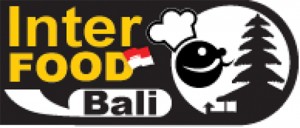
BALI INTERFOOD INDONESIA
The tourism paradise of Bali makes it a potential stop for a trade show that is able to focus on the growth in this island. Bali Interfood willbe hosting suppliers of beverages and food products alongside manufacturers / distributors in segments such as Bakery & Confectionery, Machinery, Equipments, Supplies, Ingredients, Wine & Spirits, Equipments, Supplies, Storage, Services & Related Technology for Hotel, Catering, Restaurant, Cafe, Supermarket and more.
9 – 10 March 2017
BALI NUSA DUA CONVENTION CENTER
bali-interfood.com/

Food & Hotel Indonesia 2017 will be its largest one yet with 35,000m2 exhibiting space which provides a platform for 1,600 international exhibitors and it expects the attendance of more than 30,000 qualified buyers. As the country’s leading international food and hospitality event, attracting key trade-only buyers from all sectors of the hospitality and retail industry, FHI gives international companies an undisputed entry point into this thriving and lucrative market. Food & Hotel Indonesia in Jakarta is an international trade fair for hotels, catering equipment, food and drink.
5 – 8 April 2017
JAKARTA INTERNATIONAL EXPO
www.foodhotelindonesia.com
